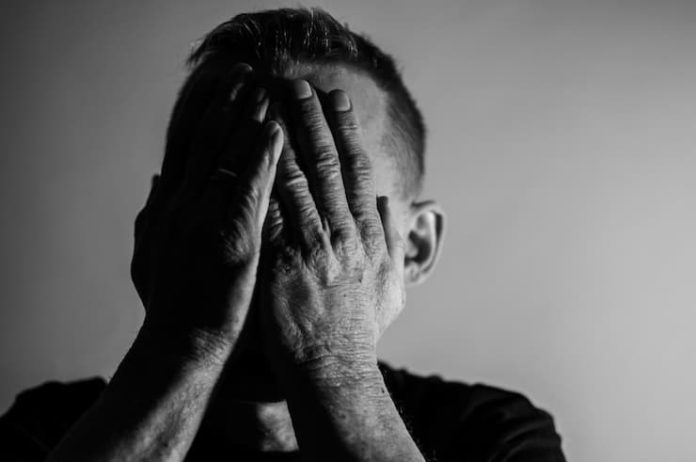In a family, each member is like a branch on a tree, growing individually yet connected at the core. If one branch faces a relentless storm, it doesn’t just batter the single branch, but it shakes the entire tree, affecting every part.
Similarly, problem gambling in one family member creates ripples throughout the whole family system, disrupting harmony and growth for all. The severity of these impacts varies, heavily influenced by the strength of the behavioral issue and the family’s interconnectedness. Let’s explore further how to deal with problem gambling as a family.
How Families are Affected by Problem Gambling
If you or a family member is dealing with gambling addiction, remember that no family is without its flaws. Every household faces its own set of challenges. The key lies in educating yourselves collectively and individually on handling and overcoming these obstacles.
This proactive approach doesn’t just tackle the immediate challenge of gambling; it also strengthens the family’s foundation. Now, let’s take a closer look at the various ways problem gambling impacts families:
Relationship Issues with Partner
As the gambling addiction statistics reveal, its impact isn’t confined to the individual; it profoundly affects their romantic relationships as well. It can introduce a range of challenges that strain the bond between partners. Let’s look at some key ways in which problem gambling affects these relationships:
Pexels – Copyright: Timur Weber - Trust: Frequent gambling can erode trust, a cornerstone of any partnership. When one partner doesn’t gamble responsibly, it may lead to secrecy or lies.
- Communication Breakdown: Gambling issues often lead to arguments and a breakdown in communication, straining the relationship further.
- Emotional Distance: The preoccupation with gambling can create emotional distance, leaving the non-gambling partner feeling neglected or alone.
Financial Stress
The family’s financial situation can also be negatively affected. It’s common for family members to try and help their partner by:
- Covering debts incurred by the gambler
- Rescuing them from financial troubles
- Secretly setting aside funds for gambling
Unfortunately, these well-intentioned efforts frequently lead to deeper financial woes. Families may risk foreclosure or bankruptcy. In addition, the family member struggling with problem gambling may try to hide the issue from the rest of the family due to feelings of guilt, fear, and shame.
Here are a few common traits of a family member struggling with problem gambling:
- A growing pile of debts, often unexplained
- Missing bank statements and financial records
- Phone calls and letters from creditors
- Savings accounts dwindling rapidly
- Frequent cash advances or withdrawals
- Disappearance of valuable items from the home
- The sudden emergence of unexpected bills or loans
- Household funds being diverted to gambling activities
In extreme cases, the desperation to fund the addiction can drive the gambler to illegal activities, like theft, exacerbating the family’s financial and emotional strain with legal repercussions.
Legal and Ethical Issues
The negative effects of gambling addiction often extend into legal and ethical realms. As financial pressures mount, problem gamblers may resort to unethical or illegal means to fund their habit. This could involve theft, fraud, or other criminal activities, putting the entire family at legal risk.
Such actions not only lead to potential legal consequences but also inflict moral dilemmas and trust issues within the family. Navigating legal and ethical challenges requires not just addressing the gambling problem but also rebuilding the family’s moral framework and trust, which is essential for healing and moving forward.
Psychological and Emotional Distress
Problem gambling inflicts significant psychological and emotional distress on family members. They often grapple with a spectrum of emotions, including anxiety, depression, and a profound sense of betrayal. The unpredictable and chaotic environment created by the gambler’s behavior can lead to constant stress and worry.
Copyright: Wikimedia Commons Family members might experience feelings of helplessness and frustration as they watch their loved one spiral deeper into addiction. The financial turmoil associated with gambling often exacerbates these feelings, leading to tension and conflict within the household. Studies have shown that close relatives of problem gamblers endure not only financial ruin but also severe mental and emotional harm.
In some cases, the stress can manifest as physical symptoms like insomnia and headaches. Additionally, the disruptive behavior of the gambler, which can include verbal, emotional, or even physical abuse, further intensifies the emotional strain on the family. Processing these complex emotions and coping with the mental health impact is a significant challenge for families affected by problem gambling.
Physical Health Consequences
Chronic stress and anxiety stemming from a family member’s gambling problem can lead to several physical health symptoms:
- Sleep patterns are often disrupted, resulting in insomnia or other sleep disorders
- Frequent headaches or migraines can occur as a direct result of ongoing tension
- Elevated blood pressure levels are a common response to prolonged stress
- Gastrointestinal issues, including stomach ulcers and indigestion, may develop
- The immune system can weaken, increasing susceptibility to various illnesses
- Muscle tension often leads to persistent neck, shoulder, or back pain
Impact on Children
Children in families affected by gambling face unique challenges. They may experience emotional neglect as the addicted parent becomes preoccupied with gambling. This neglect can lead to feelings of insecurity and abandonment.
Additionally, children might witness financial stress and conflict, impacting their sense of stability and safety. The unpredictable home environment can affect their emotional and mental development, often leading to anxiety and behavioral issues in the long term.
Social Isolation
Isolating oneself from social circles is a common symptom of gambling addiction. The individual may withdraw from regular activities and relationships to conceal their behavior or due to feelings of guilt and shame, leading to estrangement from friends and family.
Copyright: RawPixel For family members, the stigma and embarrassment of gambling issues can cause them to retreat from their social life. This isolation can severely affect mental health, diminishing the essential support network needed for coping with the stress of gambling addiction.
Long-Term Family Dynamics
Family dynamics can be significantly altered in the long run due to a member’s problem gambling. Roles and responsibilities often shift as other family members compensate for the gambler’s neglect or incapacity. For example, children might assume more adult responsibilities or one partner may become the primary financial provider.
These changes can lead to resentment and a breakdown in family unity. Over time, the foundational trust and roles within the family can become deeply disrupted. Addressing these shifts is crucial for restoring balance and harmony, ensuring that relationships can be rebuilt and strengthened over time.
How to deal with Gambling Addiction as a Family
Dealing with gambling addiction requires a united family approach. It’s about creating a supportive environment that encourages recovery while addressing the underlying issues collectively. Here are some tips to help you navigate through this challenging time:
- Open Communication: Encourage honest and non-judgmental conversations about the addiction and its effects on the family.
- Seek Professional Help: Consider therapy or support groups for both the gambler and family members.
- Set Boundaries: Establish clear and firm boundaries regarding finances and gambling behavior.
- Educate Yourselves: Learn about gambling addiction to understand its complexities and impacts.
- Self-Care for Family Members: Ensure each family member is taking care of their own mental and emotional health.
- Rebuild Trust Gradually: Focus on rebuilding trust through consistent and reliable actions.
Is Gambling Addiction Treatable?
Absolutely, gambling addiction is treatable, and there are various effective methods available. One of the most researched and successful treatments is Cognitive Behavioral Therapy (CBT). CBT helps individuals identify and change negative thought patterns and behaviors related to gambling. It has shown significant success rates, with many people overcoming their gambling issues through this approach.
In addition to CBT, other forms of counseling and therapy can also be beneficial. These treatments often focus on understanding the underlying causes of addiction, such as emotional or psychological issues, and provide strategies to cope with triggers and cravings.
Support groups are another vital component of the treatment process. Groups like Gamblers Anonymous offer a supportive community where individuals can share experiences and gain strength from others facing similar challenges. This sense of solidarity and accountability is invaluable in the journey towards recovery.
FAQ
How does gambling impact relationships?
Gambling can severely strain relationships, leading to trust issues, communication breakdowns, financial disagreements, and emotional distance. It often creates a cycle of secrecy and conflict, weakening the bond between partners.
How does gambling affect friends and family members?
Friends and families of gamblers often face emotional stress, financial hardship, and social isolation. They may struggle with feelings of anxiety, helplessness, and frustration as they cope with the gambler’s behavior and its consequences.
What are the social risks of gambling?
Social risks of gambling include strained relationships, reduced work productivity, financial problems leading to poverty, and an increased likelihood of engaging in illegal activities. It can also lead to social isolation both for the gambler and their close associates.
References:
Graziella Calleja Senior Gambling Analyst
Graziella is an expert in online gaming, specializing in the U.S. market as well as the burgeoning world of crypto casinos. Her detailed guides and reviews can be found on reputable sites, showcasing her deep grasp of America's online casino scene and the expanding crypto gambling market. Graziella's expertise has made her a reliable resource for invaluable insights and tips in these fast-moving industries. Her enthusiasm for casino games has driven her to contribute to various publications such as Michi Gambler and American Gambler.Graziella is an expert in online gaming, specializing in the U.S. market as well as the burgeoning world of crypto casinos. Her detailed guides and reviews can be found on reputable sites, showcasing her deep grasp of America's online casino scene and the expanding crypto gambling market. Graziella's expertise has made her a reliable resource for invaluable insights and tips in these fast-moving industries. Her enthusiasm for casino games has driven her to contribute to various publications such as Michi Gambler and American Gambler.View All Posts By Graziella Calleja



